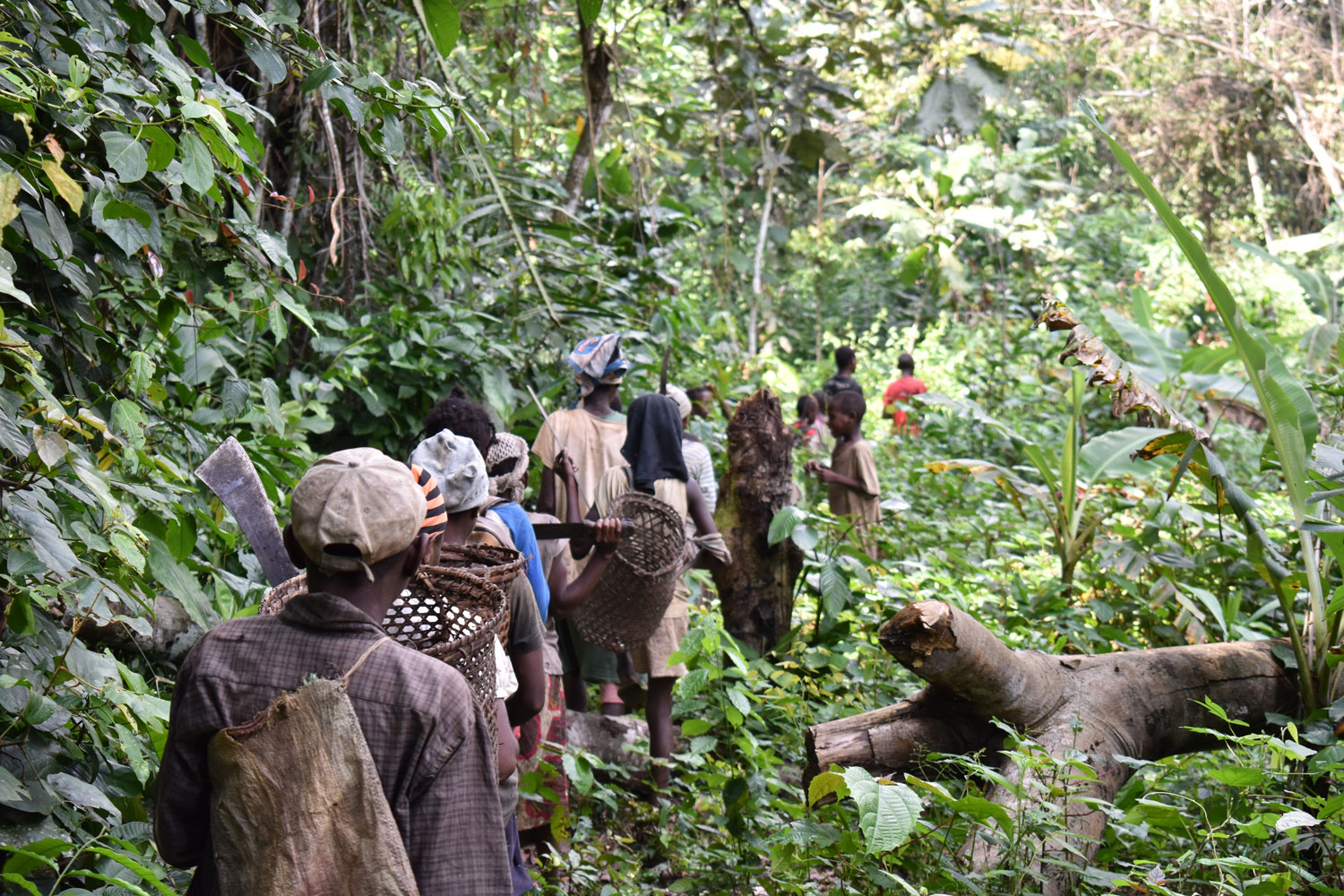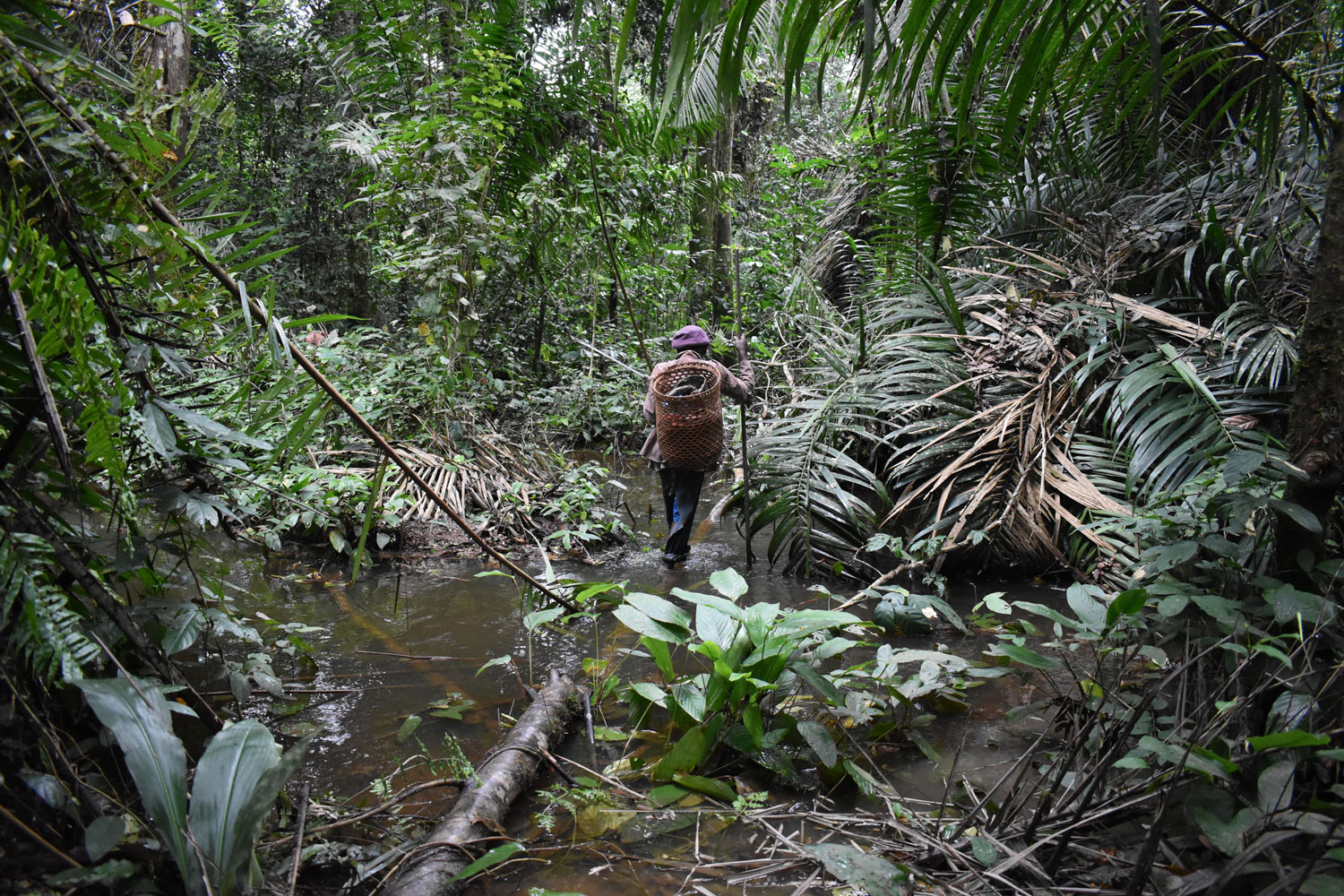JURECJuristes pour l’environnement au Congo
Active in the Salonga National Park in DRC
JUREC works for the protection of the environment as well as in the promotion of good governance of natural resources for the benefit of Indigenous Peoples and Local Communities.
In early 2019 serious allegations of violation of the rights of local communities (LCs) and indigenous peoples (IPs) living around Salonga National Park were made against officers of the Salonga National Park Management Unit. In addition, it became clear that there was a lack of knowledge on the part of local communities and indigenous peoples of their human rights in general and specifically of their rights and obligations related to the management and exploitation of natural resources in the park.
In the wake of these allegations, efforts are being made to remedy this situation and guarantee respect for the rights of LGs and IPs. Recognising that human rights and the environment are interdependent, this is being done by involving Local Communities and Indigenous Peoples in significant roles in the conservation of Natural Resources and Biodiversity.
The German government has therefore initiated the Bengo Project to respond objectively to these allegations and to inform Indigenous Peoples and Local Communities of their rights and obligations provided for in the various texts of laws and regulations, particularly in the context of nature conservation. The project aims to raise the awareness of the various stakeholders on the recognition, promotion and protection of the rights Indigenous Peoples and Local Communities, as well as the establishment of a mechanism for managing complaints and appeals on Park management activities.
How is JUREC involved in the Project?
As a non-governmental organization specializing in human rights issues in the management of natural resources and with its experience in defending and promoting the rights of local communities and indigenous peoples, the Congolese NGO "Juristes for the Environment in Congo”, (“JUREC”), has been identified to implement the Bengo Project in the Salonga National Park in the Democratic Republic of Congo.
JUREC is piloting the implementation of this Project in the Salonga landscape two ways: the establishment of the Complaints and Appeals Management Mechanism and the awareness of Local Communities and Indigenous Peoples on their rights and obligations in the management of natural resource management in the context of conservation in the DRC. The Project thus places particular emphasis on the involvement of the political-administrative and judicial authorities in the implementation of activities on the ground.


For this, JUREC has produced educational tools on the rights of Indigenous Peoples and Local Communities, on the Complaint Management Mechanism and on the Free, Informed and Prior Consent of Indigenous Peoples and Local Communities. These tools are thus tested on the ground with a view to their enrichment and adaptation regarding the realities on the ground.
In addition, given the particularity of the Indigenous Peoples and Local Communities situation in the PNS, JUREC's work begins with a mini survey of the communities. Based on exchanges and interviews with members of the community and local authorities on the basis of a simple survey questionnaire, this phase allows JUREC to perceive the level of understanding by the communities of their rights and obligations, of the status of the PNS and eco guards and other information. This allows JUREC to direct awareness towards the real needs of the communities for a harmonious management of the relations between these communities and the managers of the Salonga National Park.
In this context, JUREC serves as an interface to bridge the gap between the Indigenous Peoples and Local Communities and the protected areas management authority (PNS), with a view to creating a climate of peace between the various stakeholders involved in the management of this park. this is to achieve convincing results for the conservation of nature.
Although the Complaints Management Mechanism does not present itself as a substitute framework for Courts and Tribunals, it nevertheless allows Indigenous Peoples and Local Communities to address their complaints in complete security and confidentiality to allow JUREC to manage them with finesse to guarantee a climate of peace around Salonga between the members of the Indigenous Peoples and Local Communities and the managers of the Salonga National Park.
What does this mean for JUREC?
For JUREC, the execution of this project on behalf of the DRC is both a responsibility and an honour.
JUREC will contribute to the defence, promotion and protection of the rights of the Local Communities and Indigenous Peoples who live in and around the Salonga National Park. This effectively addresses the challenge of building the capacity of these communities on their rights and obligations in the management of natural resources, while involving political- administrative and judicial authorities.
Also, through the establishment of the Complaints and Appeals Management Mechanism, JUREC presents itself as the channel that will promote permanent dialogue between the managers of the PNS, Indigenous Peoples and Local Communities and the other stakeholders to contribute to a dual objective, that of simultaneously promoting human rights and the conservation of the park's biodiversity and enabling the peaceful settlement of conflicts arising in this context.
This will also allow peaceful coexistence, long sought after, between the Indigenous Peoples and Local Communities bordering the PNS on the one hand and the manager on the other.